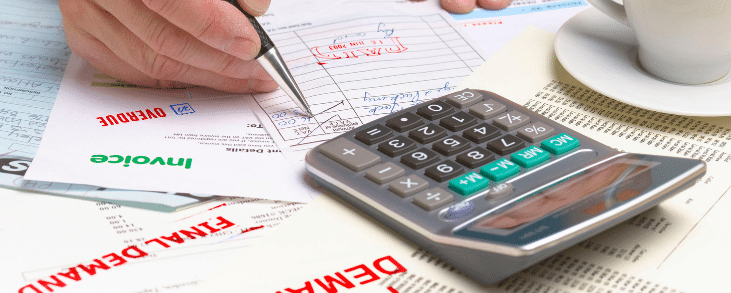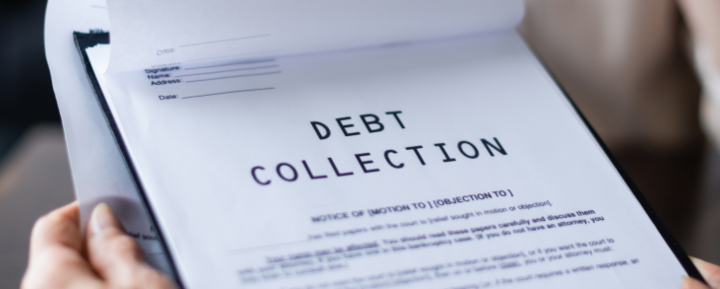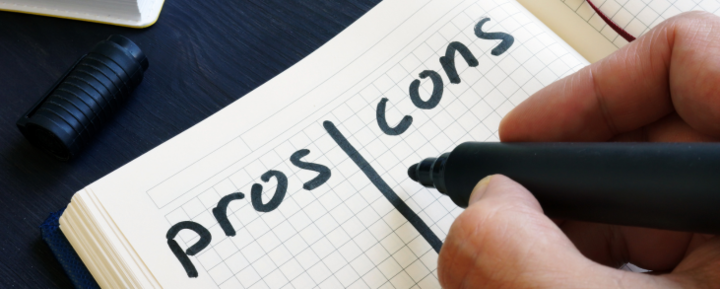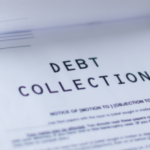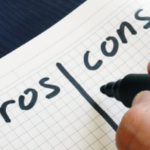Missing a payment won’t impact your credit score, as long as you get caught up within 30 days. After that, though, the delinquency will likely be reported to the credit reporting agencies and can damage your credit. If you keep ignoring your payments, your credit account could get charged off as bad debt.
At a glance, you might think that having payments charged off as bad debt might be a good thing. Perhaps the debt will go away, you think. But the creditor won’t necessarily stop calling, and they may enlist the help of a collection agency to get what they want.
If you’ve recently experienced a credit card charge-off or a similar fate with another type of debt, here’s what to know.
What Is a Charge-Off?
A charge-off typically occurs when the borrower is significantly behind on debt payments. Over the first several months, a lender or debt collector may try to collect. But once it realizes it’s unlikely you’ll pay, it writes off the debt as an expense in its profit-and-loss statement.
Additionally, the creditor will close your account and report it as a charged-off account to the three major credit bureaus.
While one or even a few missed or late payments will damage your credit score, a charge-off indicates that you’ve completely failed to repay the debt as agreed. When you apply for credit in the future, lenders will see this and may decline your application. Even if they accept, you’ll likely have a high interest rate and potentially a security deposit or higher fees.
But this whole process is just for accounting purposes. It doesn’t mean the original creditor will stop trying to collect from a borrower. In fact, it may turn up the dial in its approach or even hire outside help.
Another thing to note is that charge-offs can also occur with bank accounts. If you’ve overdrawn your account and never make good on the negative balance, the bank may take these same steps.
What to Expect When an Account Is Charged-Off as Bad Debt
If you’ve been notified that you’ve experienced credit card debt charge-off — the most common debt to be charged off — or another form, don’t get complacent. The debt still belongs to you, and as long as it’s within the statute of limitations in your state, it’s collectible.
Your Credit Will Suffer
The first thing to expect is damage to your credit history. The charge-off will remain on your credit reports for seven years from the date of the first scheduled payment that you missed.
This ding to your credit score will make it challenging to get approved for credit in the future. After all, it’s reasonable for other lenders to avoid the risk of default knowing that you’ve done it before, especially if it’s recent.
There are, of course, some lenders that specialize in working with people who have significantly negative items on their credit reports. But these loans and credit cards tend to be heavy on interest and fees.
The good news is that the impact of the charge-off will fade over time, especially if you get back on track with your credit. If you have other credit accounts that you can use while keeping up with your payments, doing so could speed up the recovery process.
Collection Calls Will Likely Continue
In some cases, the debt collector lender may continue to try to collect the debt that you owe on its own. It may also enlist the help of a collection agency to contact you on the lender’s behalf. A third option is to sell the debt to a collection agency for a fraction of the full amount owed. Lenders typically do this when they’ve exhausted all other avenues and have deemed it no longer worth the cost and effort.
Regardless of who is trying to collect, though, you’re not off the hook. In some cases, the collection tactics may even get more aggressive. This is especially the case if a collection agency gets involved.
You May Be Sued
The lender or collection agency may even try to sue you to collect. If this happens and the lender or collection agency wins, it could get a court order to garnish your wages, freeze and garnish your bank account, place a lien on select assets, and more.
As a result, it’s critical that you respond to any summons you receive related to your debt. Even if you can prove that you don’t owe it or that it’s past the statute of limitations, ignoring the lawsuit may result in a default judgment in the creditor’s favor.
Also, consider hiring a debt attorney who can help you respond and develop a strategy for the lawsuit.
3 Things You Can Do When an Account Is Charged-Off
Depending on your situation, you may have three approaches you can take to your charged-off debt.
Debt Management Plan
Consider speaking with a credit counselor who can help you determine the proper steps to take in your situation. One of those steps may be a debt management plan — though keep in mind that it’s rare a collection agency will participate in one.
With a debt management plan, the credit counseling agency may negotiate a lower interest rate or monthly payment. Additionally, it will set up a new repayment agreement with your lenders, which you’ll participate in over three to five years.
However, keep in mind that a debt management payment plan is typically best considered earlier on in the process to maximize the possibility that you can do it.
Debt Settlement
If the lender has already given up on collecting the outstanding debt, they may be amenable to a debt settlement. This is also the case for debt collection agencies, which can still profit with a lower amount.
If you’re considering debt settlement, know that you can go it alone. But it may be better to hire a debt attorney to help you through the process. Not only can an experienced attorney do an excellent job with the negotiation, but they can also take over communications and help protect your rights as a consumer.
You can request a free consultation with Tayne Law Group to get expert advice on how to proceed.
Note: If you settle for less than what you owe, you may owe taxes on the discharged portion of the debt. Ensure you understand the tax code surrounding the process to avoid dealing with a huge tax bill at the end of the year.
Bankruptcy
If a creditor refuses to settle or you’re not in a financial place where you can come up with the money for a settlement, bankruptcy may be the next best choice.
Bankruptcy is never ideal because it can remain on your credit report for up to 10 years. But if you’re out of options, using bankruptcy as your last resort may be your best bet.
Again, it’s a good idea to consult with a debt attorney before you decide to file. The attorney can give you all the information you need to make the right choice for you.
They can also represent you throughout the process, relieving some of the burdens of dealing with the creditor from your shoulders.
The Bottom Line
Having a credit account charged off as bad debt can wreak havoc on your finances and your life in general. But while it’s best to avoid charge-offs in the first place, understanding what to expect and the paths you can take can make a massive difference in the long run.
